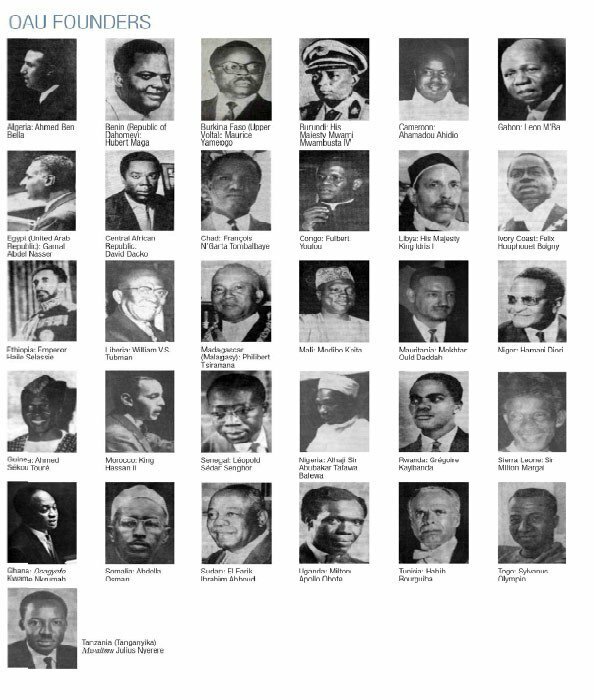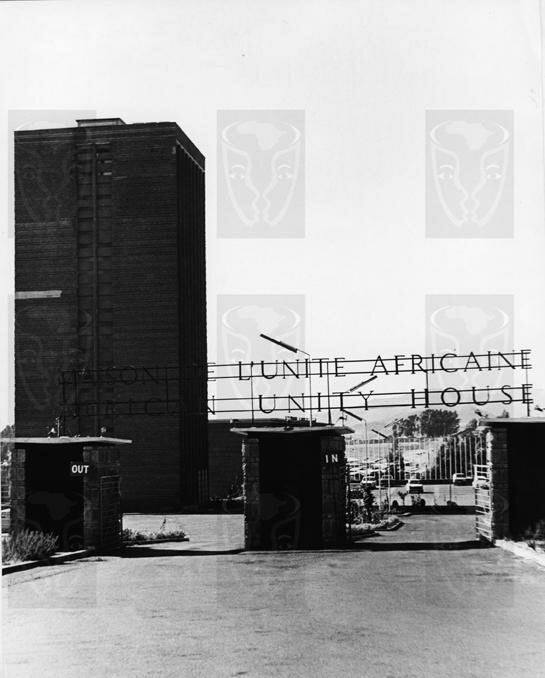Today in History, exactly 57 years ago, On 25 May, 1963, the first African organisation after independence, the Organisation of African Unity (OAU) was formed in Addis Ababa, Ethiopia in which President Kwame Nkrumah of Ghana and Emperor Haile Selassie of Ethiopia played prominent roles. Later On July 9, 2002 at an meeting of African leaders in Durban, South Africa, the African Union (AU) was formed.

The Organization of African Unity (OAU) was an alliance of independent African nations working to enhance cooperation between the newly decolonized African governments. The alliance had its basis in the Pan-Africanist philosophy encouraging the unity of all peoples of African ancestry, but it also was inspired by ongoing independence struggles as various African nations freed themselves from European colonial rule in the early 1960s.
On 25 May, 1963, Ethiopian Emperor Haile Selassie invited the heads of the 32 independent African nations at the time to convene at his country’s capital, Addis Ababa. The result of this conference was the formation of the OAU, further 21 states joined gradually over the years, with South Africa becoming the 53rd member on 23 May 1994 of the 55 African states as members. Morocco was the only state to decline membership.

The OAU ’s basic principles included promotion of solidarity among African states, improved quality of life for Africans, a promise to defend the sovereignty of African states, and eradication of colonialism in all its forms. The OAU hoped to achieve these goals through cooperation and peaceful negotiation between its members.
Ghana’s first president, Kwame Nkrumah, was a passionate believer in African unity, and a living link with the historic Pan-African movement which had promoted solidarity among people of African descent everywhere against colonialism and racism.
Kwame Nkrumah categorically linked Ghana’s independence to the continent’s own, recognising that “the independence of Ghana is meaningless unless it is linked up with the total liberation of the continent.” Nkrumah therefore established a series of conferences hosted in Accra between 1958 and 1960 with the aims of assisting countries still under colonial rule, fostering cultural and economic ties between countries and considering the issue of world peace.
While the immediate full integration of African countries was untenable, the OAU did make significant steps towards identifying socio-economic development issues which racked the continent after independence. Thus, the OAU Charter outlined its objectives to
a) Promote unity and solidarity of the African states
b) To coordinate and intensify their cooperation and efforts to achieve a better life for the peoples of Africa,
c) To defend their sovereignty, their territorial integrity and independence,
d) To eradicate all forms of colonialism from Africa, and
e) To promote international cooperation, having due regard to the Charter of the United Nations and the Universal Declaration of Human Rights.
This was to be achieved by calling on member states to recognise
1. The sovereign equality of member states,
2. Non-interference in the internal affairs of each state,
3. Respect for the sovereignty and territorial integrity of each state and its inalienable right to independent existence,
4. Peaceful settlement of disputes by negotiation,
5. Unreserved condemnation, in all its forms, of subversive activities on the part of neighbouring states or any other states,
6. Absolute dedication to the total emancipation of the African territories which were still dependent, and
7. Affirmation of a policy of nonalignment with regard to all other blocs.
At the 2001 OAU summit meeting of African presidents in Libya, the leaders committed themselves to the idea of developing an African Union to replace the Organisation of African Unity (OAU). In 2002 the OAU was dissolved and was replaced by the African Union (AU).
25 May, now celebrated as Africa Day, marks the beginning of a quest for the unity of the continent and for the political and economic emancipation of its people as well as co-operation among them.